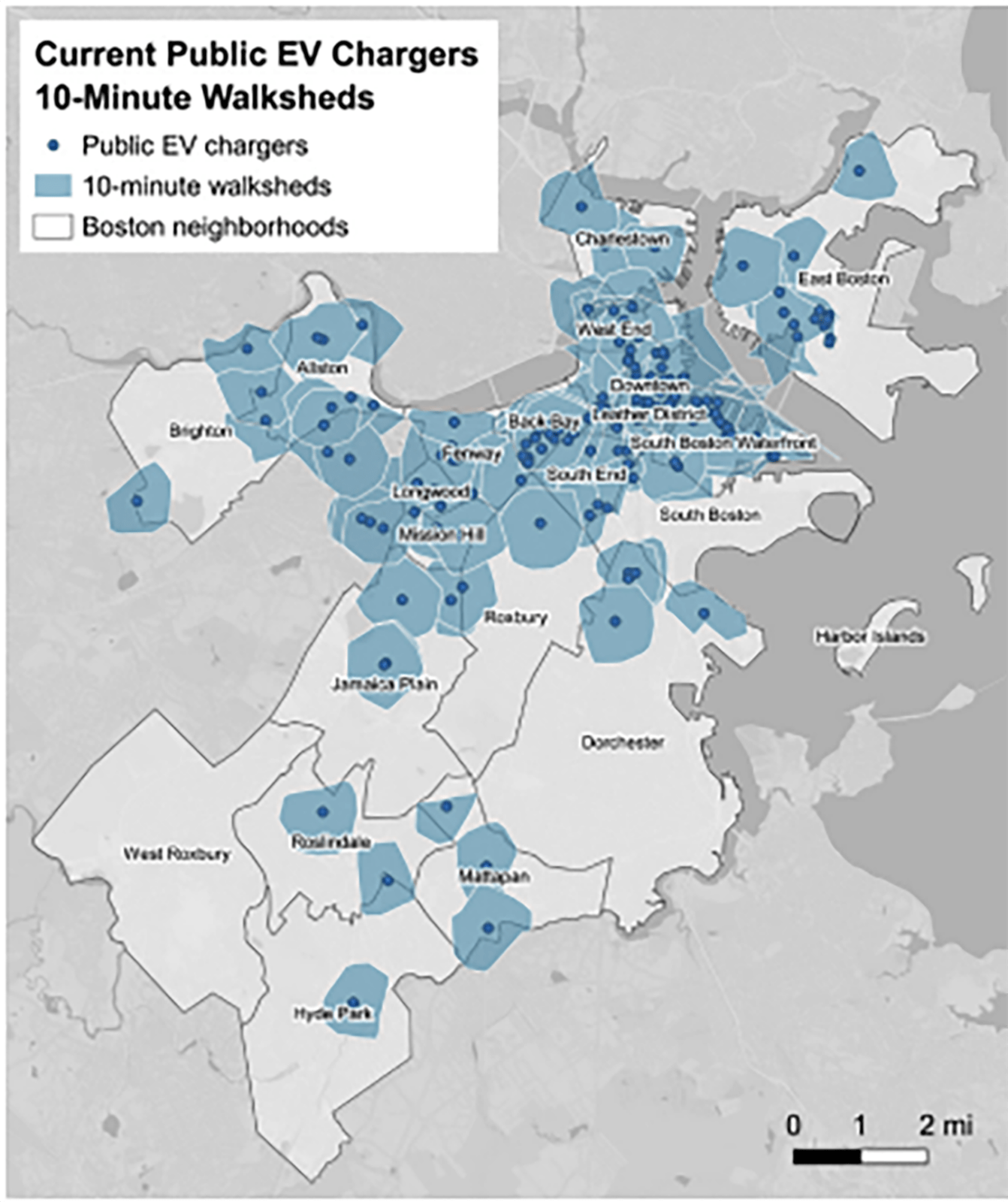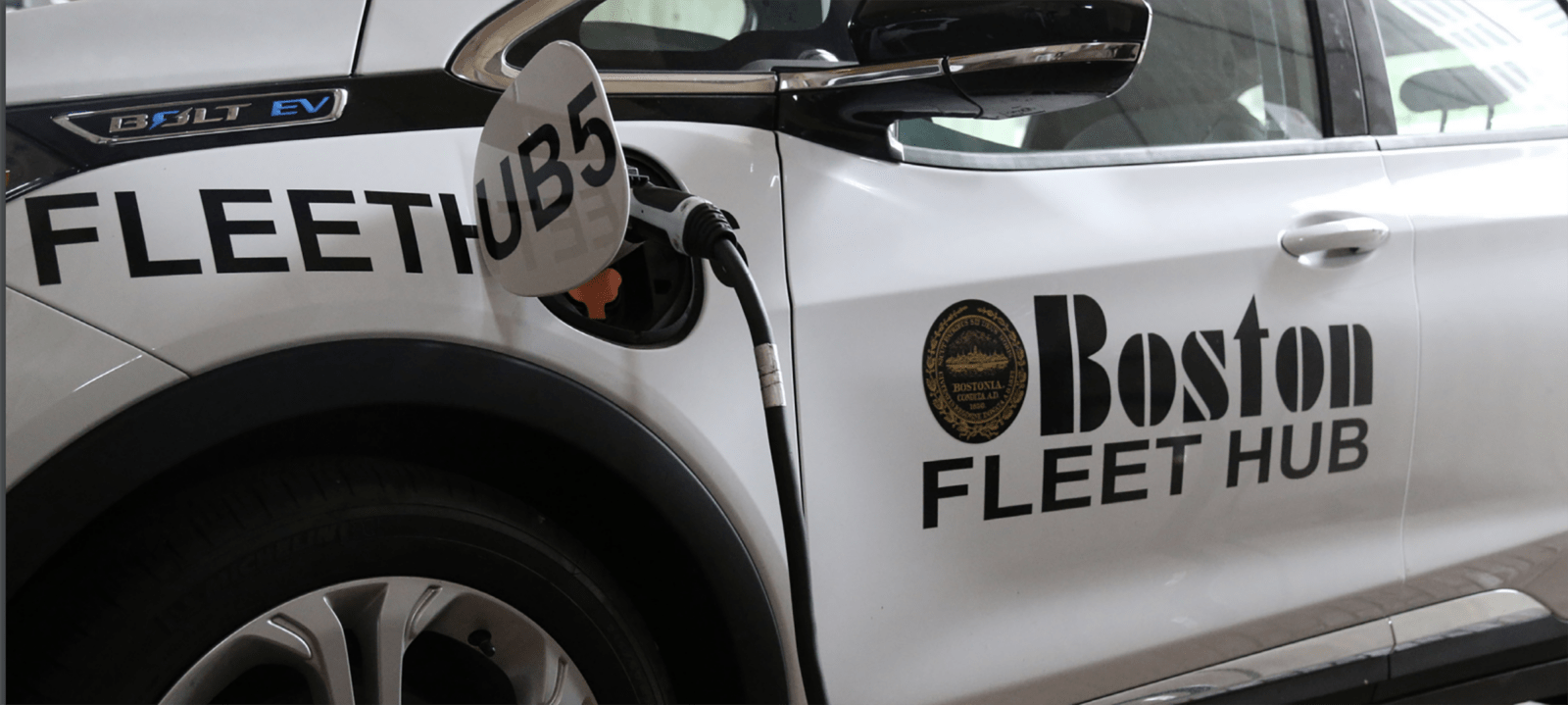The City of Boston has implemented electric vehicles (EVs) into the City’s sustainability efforts by supporting widespread adoption, ensuring convenient and affordable access to charging, and electrifying their municipal fleet. Their Zero-Emission Vehicle Roadmap is an action plan that looks at the different barriers and benefits to EVs and lays out specific goals and the path to take for the City to reach carbon neutrality.
To reach carbon neutrality, Boston must work to transition all vehicles on the roads to be EVs or ZEVs over the next 30 years. This Roadmap analyzes the barriers and benefits to EVs and market trends, and takes a critical eye to their own municipal fleet to better understand the pathways to carbon neutrality.
The result is an action plan that provides the framework for the next three years of the City’s efforts towards electrification, to be revisited annually to measure success, and shift course if needed. In addition, the City has a strong priority to shift individuals from single-occupancy vehicles to more sustainable modes of transportation like shared trips, walking, biking or transit.

The City has a goal for every household to be within a 10-minute walk of a public EV charging or an EV car share, and for 23% of new vehicle purchases in Boston to be EVs by 2025.
The City of Boston also provides stakeholders and citizens with EV resources on its Recharge Boston website including how-to guides for workplaces and homes wanting to learn more about charging and incentive programs, and information about e-bikes.

